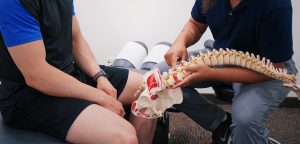In a groundbreaking development for spinal health, the FDA has granted authorization for a shorter version of the Mobi-C cervical disc replacement system. This move opens up new possibilities for surgeons and patients alike, offering a range of benefits that promise to revolutionize cervical disc arthroplasty.
The revised approval encompasses the Mobi-C in seven different footprints, catering to the diverse anatomical needs of patients in the United States. It's a significant step forward in spinal care, building on a legacy that began in France in 2004 when Mobi-C became the first FDA-approved cervical disc replacement for single and double contiguous levels in 2013.
Rebecca Whitney, the Global President of ZimVie Spine, the company behind Mobi-C, expressed her enthusiasm for this milestone. She stated, "The FDA approval of the 4.5mm Mobi-C is a win for our surgeons and their patients, as well as a validation of thoughtful strategy by our global regulatory affairs team, who used real-world clinical evidence from EU studies to show long-term safety and efficacy and secure the smaller disc." This achievement underscores our dedication to advancing spinal care and preserving patient mobility.
Mobi-C, constructed from a robust cobalt-chromium alloy and polyethylene mobile-bearing prosthesis, streamlines the implantation process. The unique feature of anterior implantation sets it apart, eliminating the need for bone chiseling or spinal anchoring via screws or keels. Following a discectomy, Mobi-C steps in to reconstruct the cervical disc, spanning from C3 to C7, specifically designed for skeletally mature individuals.
Orthopedic spine surgeon Dr. Jad Khalil further praised the introduction of the shorter implants, labeling them "an important addition to the Mobi-C lineup." Dr. Kee Kim of UC Davis concurred, highlighting the increased versatility this innovation offers surgeons.
One notable advantage is that surgeons can now employ the prosthesis in cases involving severely compressed discs without overstressing the facet joints. This expanded range of applications for cervical disc arthroplasty signifies that more patients will benefit from the clinical excellence of the Mobi-C Cervical disc.
The introduction of the 4.5-mm Mobi-C promises to enhance the quality of life for countless patients. By accommodating a wider array of anatomical variations and surgical scenarios, it empowers healthcare professionals to make more informed decisions about spinal care. This, in turn, can lead to better outcomes and a higher quality of life for individuals facing cervical disc issues.























